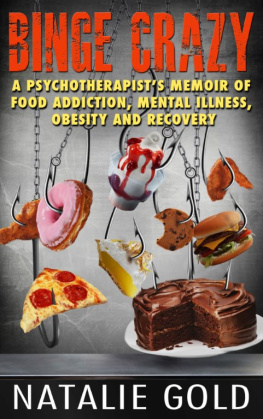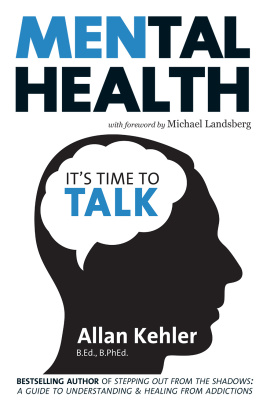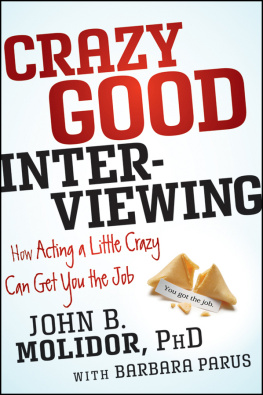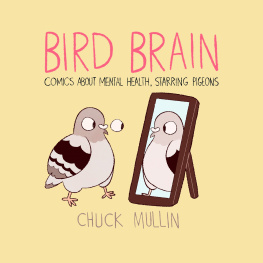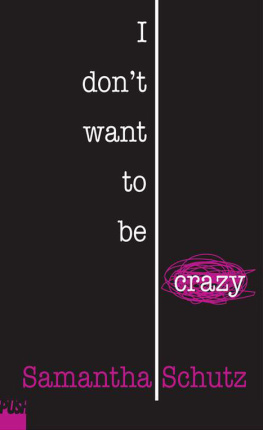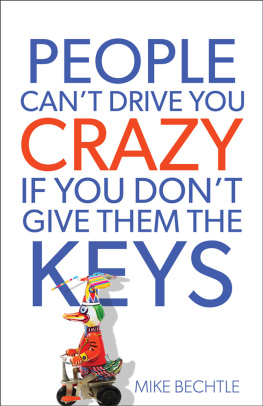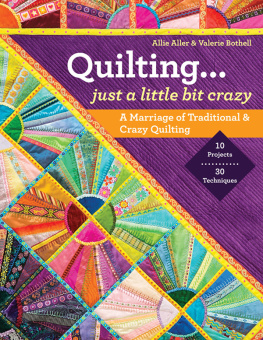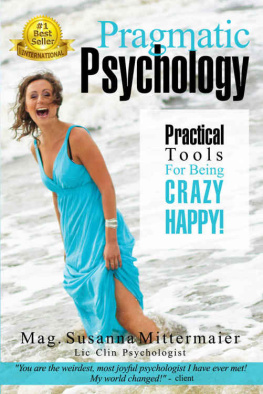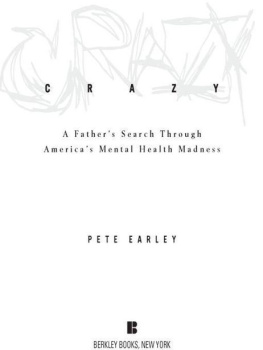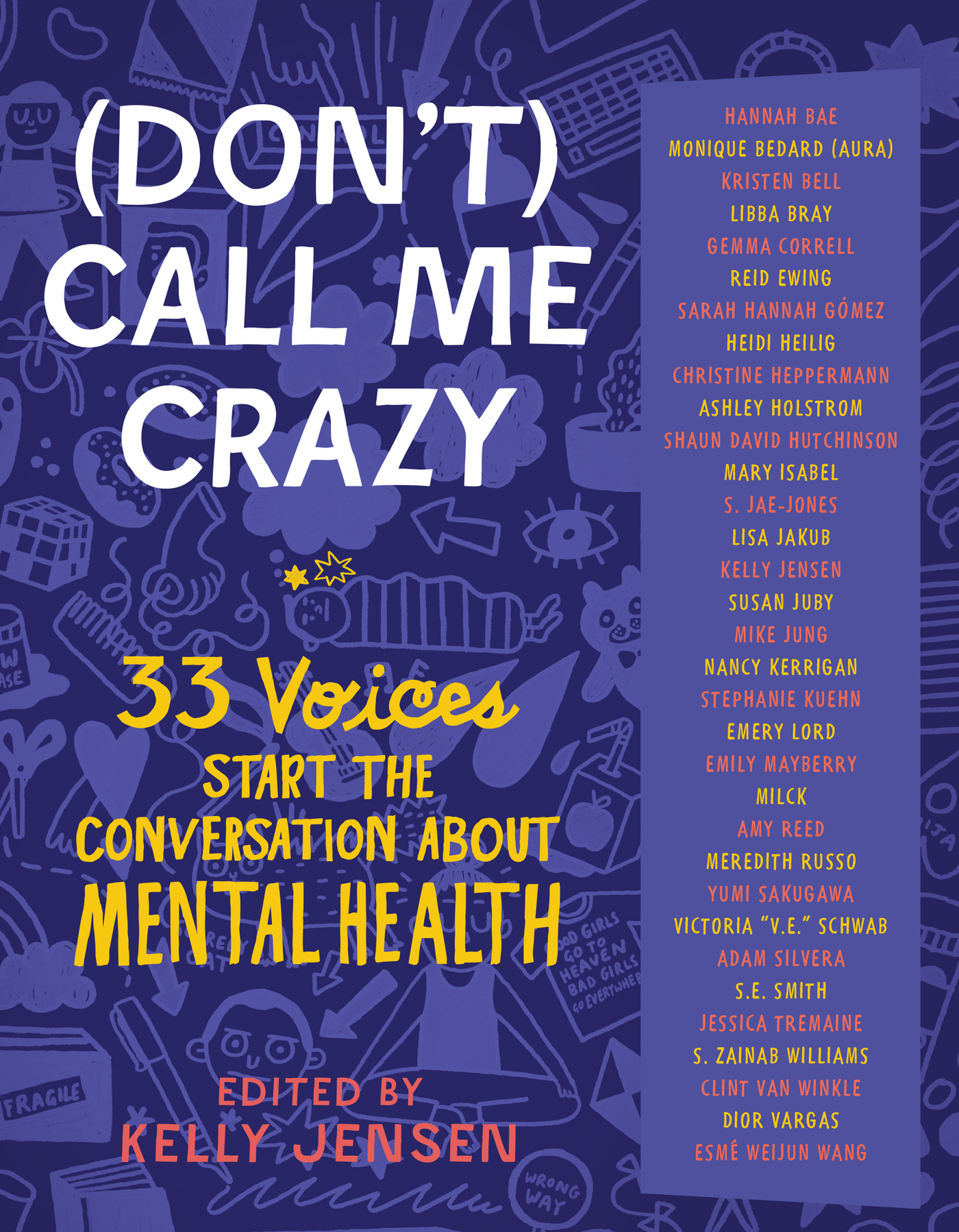
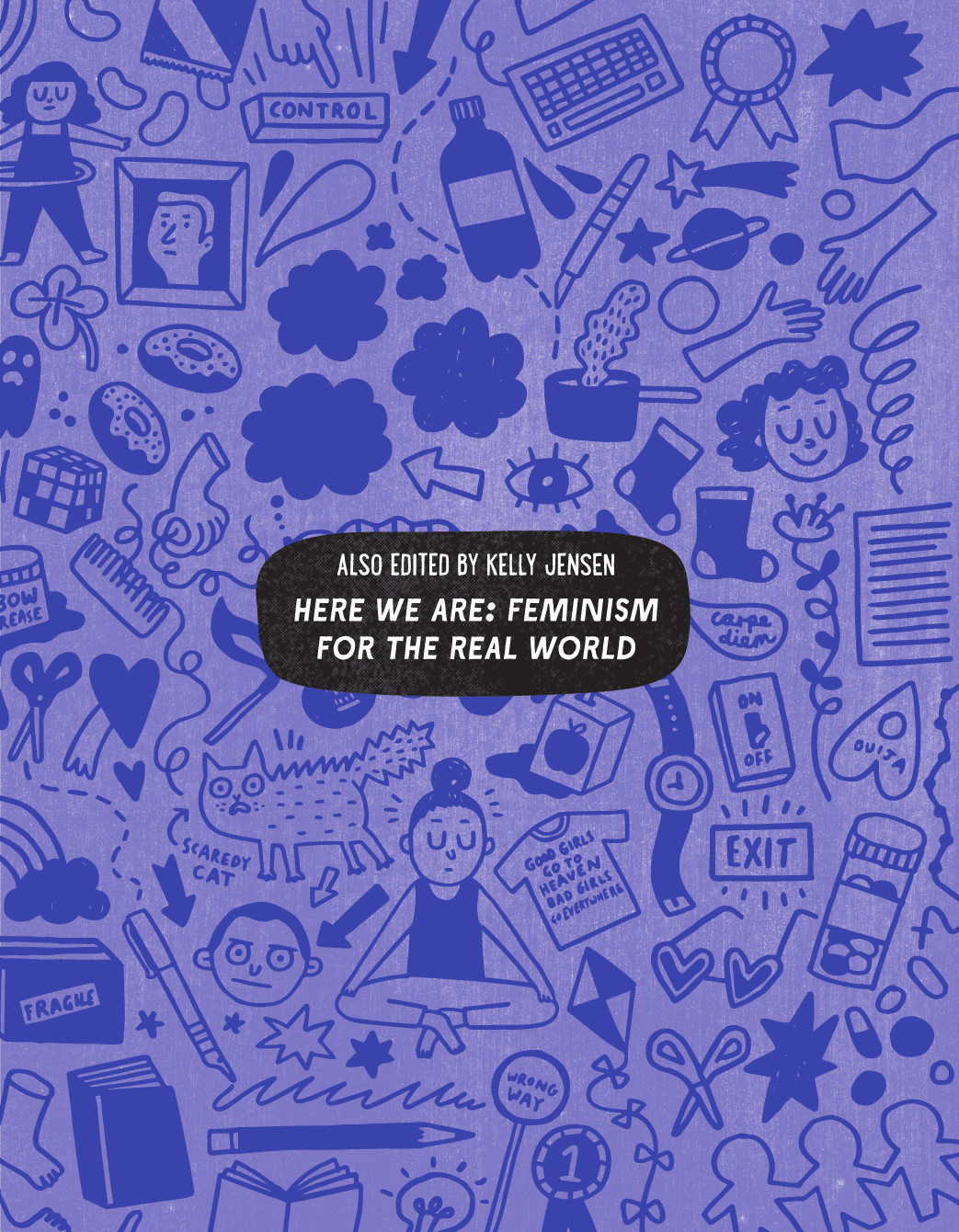
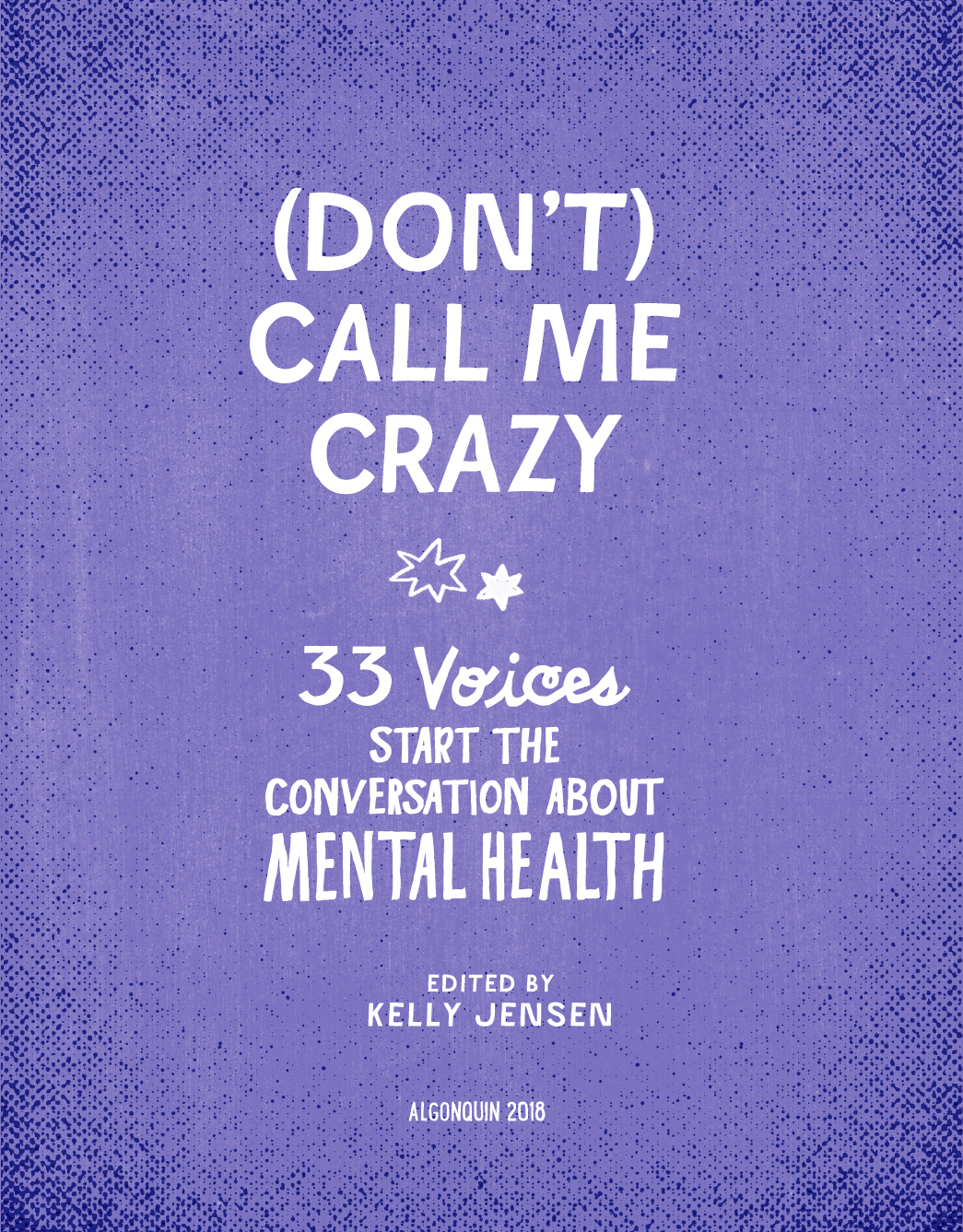
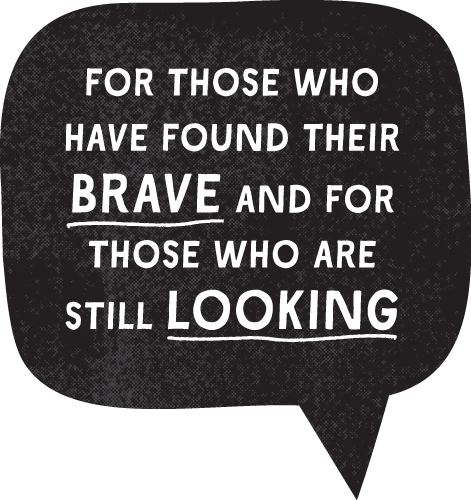
Table of Contents
CHAPTER 1
by Shaun David Hutchinson
by Ashley Holstrom
by Ashley Holstrom
by Dior Vargas
by Sarah Hannah Gmez
by Stephanie Kuehn
by Mike Jung
by Mike Jung
CHAPTER 2
by Christine Heppermann
by Stephanie Kuehn
by S. Jae-Jones
by Monique Bedard (Aura)
by Monique Bedard (Aura)
by s.e. smith
by Heidi Heilig
by Heidi Heilig
by Emily Mayberry
CHAPTER 3
by Amy Reed
by Esm Weijun Wang
by Jessica Tremaine
by Reid Ewing
by Susan Juby
by MILCK
CHAPTER 4
by Libba Bray
by Emery Lord
by Gemma Correll
by Clint Van Winkle
by Esm Weijun Wang
by Gemma Correll
by Victoria V.E. Schwab
by Kristen Bell
by Gemma Correll
by Mary Isabel
by Lisa Jakub
by Lisa Jakub
CHAPTER 5
by Meredith Russo
by Yumi Sakugawa
by Kelly Jensen
by Adam Silvera
by Hannah Bae
by S. Zainab Williams
by Nancy Kerrigan
by s.e. smith
by Esm Weijun Wang
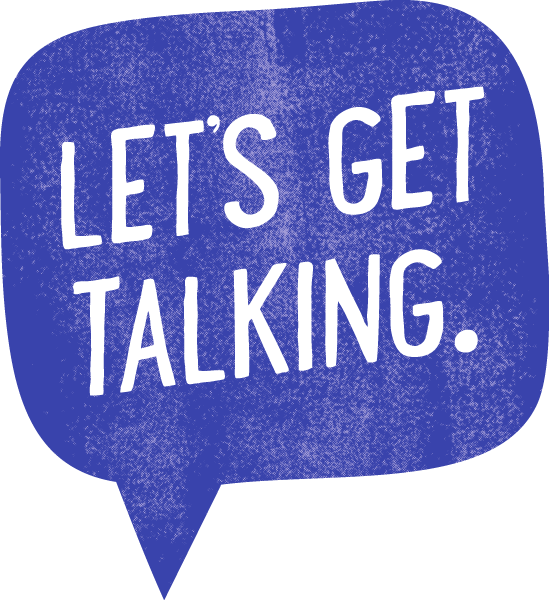
introduction
W e all have thoughts, feelings, and internal struggles. Theyre all part of what makes us human. Our brains are complex, intricate, and unbelievably fascinating machines that serve as central command for our bodies and our lives day in and day out.
And yet, we dont talk about our brains as much as we should. Mental health is a core component of our overall health, but finding ways to talk about it comes far less naturallyand can be far less acceptedthan talking about our physical health.
(Dont) Call Me Crazy is a conversation starter and guide to better understanding how and where mental health impacts us each and every day. This is neither a tool for diagnosis nor a medical guide. Its a pulling back of the curtain and an opportunity to get up close and personal with mental health. It is by turns intense and raw, as well as humorous and lighthearted. It showcases a wide range of experiences, as well as the power and eccentricities of each persons unique brain.
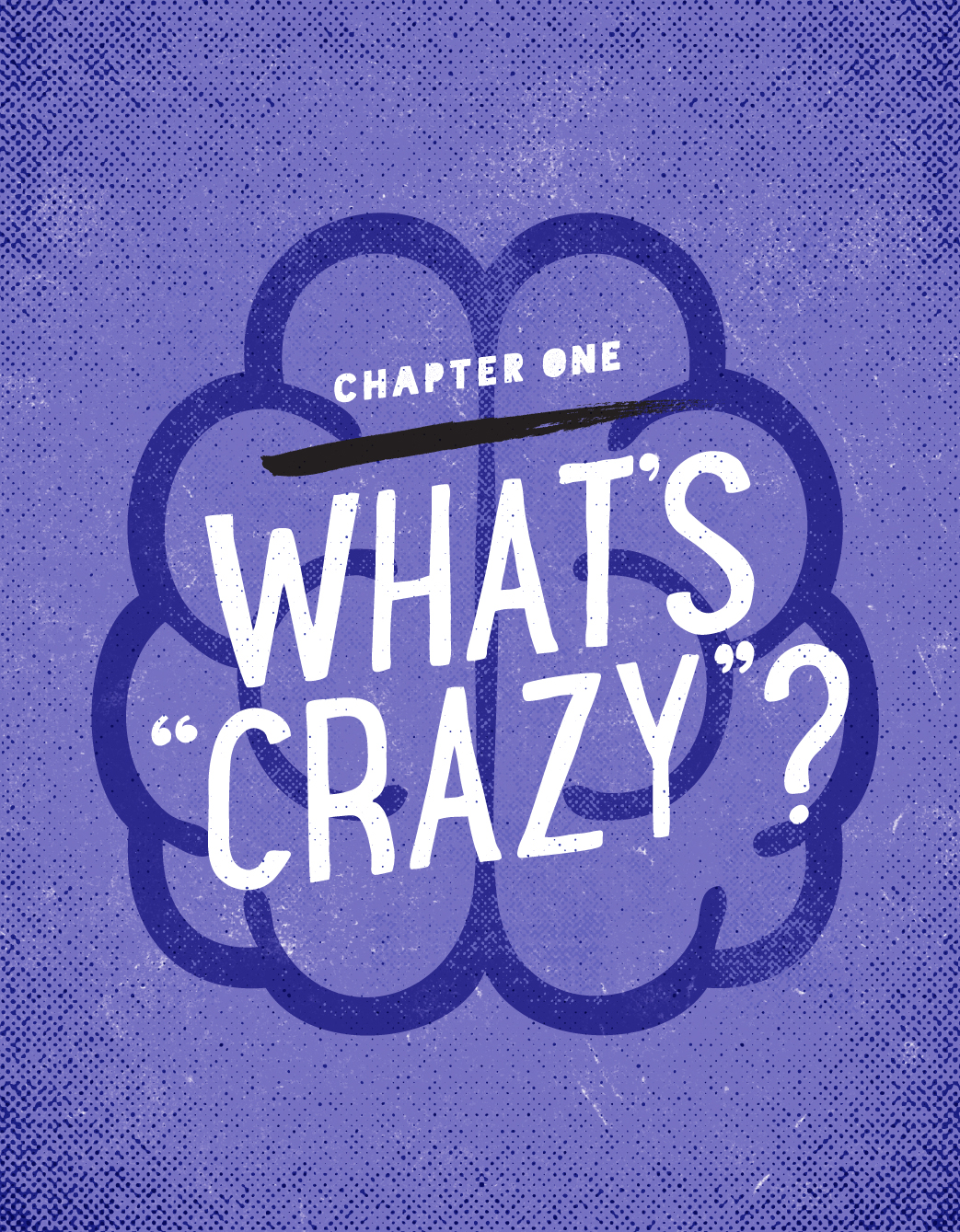
Whats Crazy?
I s there a single definition of what it means to be crazy? Is using the word crazy offensive to those struggling with mental illness and something to be avoided? What does it mean for people when labels like crazy are attached to their everyday experiences?
One of the best ways to understand mental health is, of course, to start talking about it. The more we talk, the more it becomes clear that theres no single definition of crazy, that theres no single experience of crazy, and that the word crazy itself means different things to different people. Some avoid labels, while others embrace them. There is power in language, and theres power in what a word or a label can mean to each person.
Crazy is not a singularor definitiveexperience.
defying definition
by Shaun David Hutchinson
I have Doctor Who shoes. Theyre custom-made Converse high-tops that I created online. Theyre TARDIS blue with white detailing and a black strip down the back that says Police Box. I love those shoes and I wear them everywhere.
I am not, however, the Doctor.
My profession is that of author. I spend most days clacking away on a keyboard (another custom-made job, but one I built myself, with old-timey typewriter keys and a hardwood case), drinking coffee, and talking to my dog. Over the past six years, I have produced an average of two books per year, and all the subject matter I write about is very personal to me.
I am not, however, my books.
Many of my off-hours (and often when I have a day job) are spent working with computers. Programming, building hardware, tinkering. I learned to build computers when I was sixteen. I wrote my first bit of code when I was twenty. I have supported myself throughout the years working with computers, and Ive enjoyed being able to make money doing something I love.
I am not, however, a computer.
When I was nineteen, I attempted suicide. I was diagnosed with a major depressive episode. I have since been diagnosed as having persistent depressive disorder. I just call it depression. Some days are better than others. Some years are better than others. When everything else in my life is going well, I know Im about to go through an episode because Ill begin to feel like Im getting the flu. I become achy, exhausted, irritable. I have tried many different medications over the years but havent found one that works for me. I have come to accept that I will deal with depression for the rest of my life.
I am not, however, depression.
Depression does not define me. If I were to make a list of all the words I, or others, might use to describe me, it might include: weird, inconsiderate, quiet, lonely, goofy, kind, awkward, focused, and depressed. But those are simply different facets of the person people see when they see me. Depending on the time of day or whether Ive had enough coffee or am on a deadline, a hundred people might walk away with an entirely different set of words theyd use to describe me. And while all those words might be useful for cataloging my behavior in one given circumstance, they would not and could not define me completely. Because we define words, not people.
We define words. We use words to define other words. A single word can have multiple meanings depending upon context, but it remains a thing that can be defined. Depression, for example, is a word with a definition. If you look up depression in the Diagnostic and Statistical Manual of Mental Disorders (DSM-5), youll find a list of valuable criteria necessary for diagnosing depression. Look the word up in the dictionary, and youll find it defined in simpler terms. I have my own definition of depression based on my personal experiences with it, because depression is a word, and we define words, not the other way around.
Depression is a thing I carry with me. It is a shadow that lurks inside me. Depression is the smoke that ebbs and flows within my body. Depression is the result of chemical changes within my brain. Depression is the parasite. It is the foreign invader. An unwelcome guest. Depression is the voice that whispers in the back of my head. It is the rain that falls and the thunder that shakes the windows and the lightning that strikes the earth.
It is the ghost that haunts me.
I define depression, but depression does not define me because you cannot define a person. Not with a single word, not with an entire book. Human beings defy definition. Yet the stigma surrounding mental illness makes some believe we can use it to define others, and it often deceives us into believing we must use it to define ourselves.
I dislike the word hysterical. It is derived from the Latin word hystericus (of the womb) and is often used as a means to undermine women. Men wield the word like a cudgel to undercut women and diminish the legitimacy of any argument they might make. And the tactic frequently works because even those who might not be aware of the words etymology at least subconsciously know that it (falsely) implies weakness they believe to be applicable only to women. Calling a woman hysterical is a despicable attempt to devalue her and any argument she might be making by defining her by a single characteristic.
Next page

